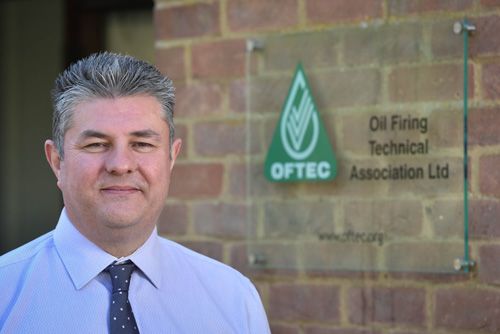

OFTEC has responded to a call for evidence from the Department for Business, Energy and Industrial Strategy (BEIS) with a strong case highlighting the crucial role low carbon liquid fuels should play in decarbonising heat from rural homes.
BEIS’ ‘Future Framework for Heat in Buildings’ sought views and evidence from industry on actions which can be taken to phase out high carbon fossil fuel heating in off-grid properties during the 2020s. The findings will be published later this year and used to inform draft policy.
OFTEC’s submission focused on the introduction of reduced carbon liquid fuels as the most affordable and practical decarbonisation route for the 850,000 oil using homes in England and Wales. This should be achieved through a stepped pathway to achieving zero emissions by 2050 which includes:
- the replacement of old, inefficient oil boilers with new high efficiency condensing models and energy efficiency controls via an incentivised scrappage scheme, providing immediate carbon wins
- financial support through ECO3 for fuel poor and low income families to achieve the conversion
- the roll out of a low carbon liquid fuel with an agreed incremental reduction in the carbon content over time
- ongoing industry innovation to develop the next generation of appliances to meet the highest standards for efficiency and emissions.
In 2010, OFTEC conducted successful field trials of a low carbon liquid fuel called B30K (30% FAME/70% kerosene). The fuel is now commercially available and costs only slightly more than heating oil. More recently, OFTEC members conducted combustion tests on Hydrotreated Vegetable Oil (HVO) and kerosene blends from 60% to 100% HVO, with highly positive results.
CEO Paul Rose said: “The capability of the oil heating industry to innovate and meet the government’s decarbonisation agenda has not been adequately recognised. It is not boilers that produce carbon emissions, it’s the fuel they run on. Therefore, it is premature for government to consider regulating against oil heating when all liquid fuel boilers could be run on a low carbon alternative fuel before 2035.
“A reduced carbon liquid fuel would offer an almost drop-in replacement for kerosene, overcoming the significant cost and practical issues of replacing an entire heating system. These barriers have been well documented as significant reasons for the poor take up of renewable technologies to date. There is also a well-developed and competent network of supply, installer and servicing businesses already in place who could continue to support consumers at little or no additional cost.
“A contact group has recently been established, providing a positive way for BEIS and industry to constructively work together and develop solutions. However, what industry needs before further steps are made, and is currently lacking, is a clear commitment from government that low carbon liquid fuels will be an accepted part of policy going forward. Innovation funding should also be made available to aid the development of an alternative fuel in the same way that support has been allocated to explore hydrogen options.”
OFTEC’s response also highlights the harsh realities of decarbonising off-grid housing stock. An estimated 88% of off-grid homes currently fall into EPC band D or below and over 70% of rural properties have unfilled cavity or solid walls* making them difficult to treat without significant investment.
